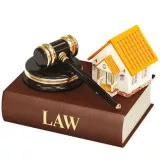What are Your Renters Legal Rights?
Understanding your renters legal rights is important if you're renting a property. Join us as we explain the renters bill of rights to you in plain English.
The renters bill of rights is based on the Uniform Residential Landlord and Tenant Act. This Act governs your rights as a renter for many U.S. states, including:
Alabama, Alaska, Arizona, Connecticut, Florida, Hawaii, Iowa, Kansas, Kentucky, Michigan, Mississippi, Montana, Nebraska, New Mexico, Oklahoma, Oregon, Rhode Island, South Carolina, Tennessee, Virginia, Washington
*For the remaining states (including California and Texas), their tenant bill of rights are also closely derived from this Act.
Since the official Act document contain 40 pages of heavy legal reading, we have summarized its key points below:
Renters Legal Rights for Security Deposit
The renter has the right to claim back the security deposit (minus any appropriate deductions) within 14 days of the lease termination.
If the landlord fails to return the security deposit within 14 days OR the landlord doesn't provide an itemized list of deposit deductions, then the tenant can claim for damages equal to double of all wrongful deductions (plus attorney fees).
Renters Rights for Property Maintenance
It is your rights as a renter to live in safe and sanitary conditions. Therefore the landlord must:
- maintain the property and its common areas in the accordance to the local health and safety codes
- keep the property's utilities and fixtures in safe working condition, including the electrical, plumbing, sanitation and heating/cooling systems
- repair and pay for all damages due to normal wear and tear
If there are property damages or defects that affects the health or safety of residents, the renter may send the landlord a written notice informing the landlord of the damage.
Upon receiving the renter's written notice, the landlord must repair the damage within 14 days or the renter has the right to terminate the lease within 30 days (after the landlord has received the notice).
However, the renter cannot terminate the lease if the damage was caused by abuse or negligence by the renter, the renter's family or the renter's guests.
*Disclaimer: While we make every effort to update this guide, always consult the law text on your state government website before making any legal decisions. If you have any questions, Click here to ask a professional real estate lawyer.
NEXT: Your Renters Legal Rights for Property Access and Lease Termination


